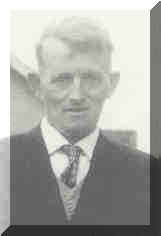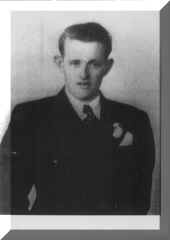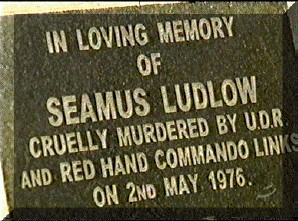The Murder of Seamus Ludlow in County Louth, May 1976. Towards a public inquiry?



The Murder of Seamus Ludlow in County Louth, May 1976. Towards a public inquiry?
|
|
Introduction to the murder of Seamus Ludlow and the official cover-up. Michael Cunningham investigation - 1978 The recent Campaign for Truth and Justice. Irish Victims Commission Report. Ludlow family's questions for the RUC (now the PSNI). Jim J. Kane's letter to the N I Human Rights Commission. Jim J. Kane's letter to the RUC Ludlow Family Letter to Bertie Ahern Other Ludlow Family Sites. |
The Irish News, 21 May 1999: Ludlow inquiry moves expected By Aeneas Bonner A leading human rights group said yesterday that a full inquiry into the 1976 murder of Seamus Ludlow would be a "momentous step forward". British Irish Rights Watch, which wrote yesterday to Taoiseach Bertie Ahern with its views on an inquiry, said it would be the first time the Irish government has examined allegations of collusion within the Garda. The Department of Justice refused to comment yesterday on speculation an inquiry would be unveiled later this month, but Garda sources have privately confirmed an announcement is imminent. The potential impact of any judicial inquiry has been compared to that of the recent Stephen Lawrence case in England, and will raise questions of Garda cover-ups and cross-border collusion for the first time. Mr Ludlow, a 47-year-old forestry worker, is believed to have been abducted by loyalists while hitchhiking home from Dundalk in May 1976. The family were told at the time the IRA was responsible for the killing, and it was only more than 20 years later that fresh information emerged implicating a unit of UDR men and Red Hand Commandos operating across the border. Four men were arrested early last year to be questioned about the case and the DPP is considering whether to press charges against the men. British Irish Rights Watch director Jane Winter said yesterday it would be a "very momentous day for Ireland" if the government allowed an inquiry into allegations of a police cover-up. "We have written to the Taoiseach today saying that if he is to announce an inquiry then we congratulate him for tackling a difficult subject with courage and integrity," she said. She said it must be a public judicial inquiry with powers to fully investigate the family's suspicions, and urged that the terms of reference be drawn widely to consider both the murder and any cover-up. "The family should also be allowed legal representation and if necessary legal aid to participate in the inquiry and we also asked for the Garda report to be disclosed. we welcomed the news, but this has got to be the right kind of inquiry," she said. Ms Winter said this would be a "momentous step forward" for the Republic if the issue of collusion was addressed for the first time in this way, and she was hopeful an inquiry concerning the Dublin-Monaghan bombs would also follow. "The Ludlow case raises serious issues regarding policing in the Republic, and may even lead to a Patten-type commission as in the North. The Garda has always had a very good reputation in the Republic, which was not always deserved. "It is important for the health of any democracy anywhere for the public to have their trust in the police well-founded - especially in difficult cases. The Ludlow case is one where the family feel very badly let down." Michael Donegan, a nephew of Seamus Ludlow, has said he will wait until the full details of any inquiry is announced before making a judgment on it. He said he welcomed any new development in the case, but insisted the family had been "lied to for so long" that they were now cautious at any fresh speculation.
I Homepage I I Top I I BIRW Report I I Press Coverage I |